Enrique, Xana, and the healing power of sport
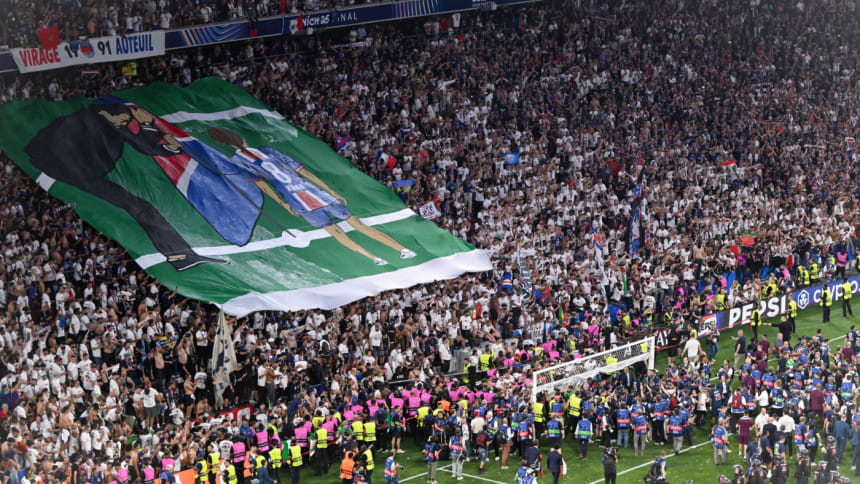
Sometimes, sport does more than crown winners. In a world spinning faster, louder, and often colder, it often offers healing as an unlikely source; a reminder of something quieter: humanity. Of loss. Of love. Of remembering the right things and, perhaps most of all, of carrying on.
On Saturday night in Munich, Paris Saint-Germain finally climbed Europe's greatest peak. A first Champions League title. A thumping 5–0 win over Inter Milan; glory long overdue for the big spenders.
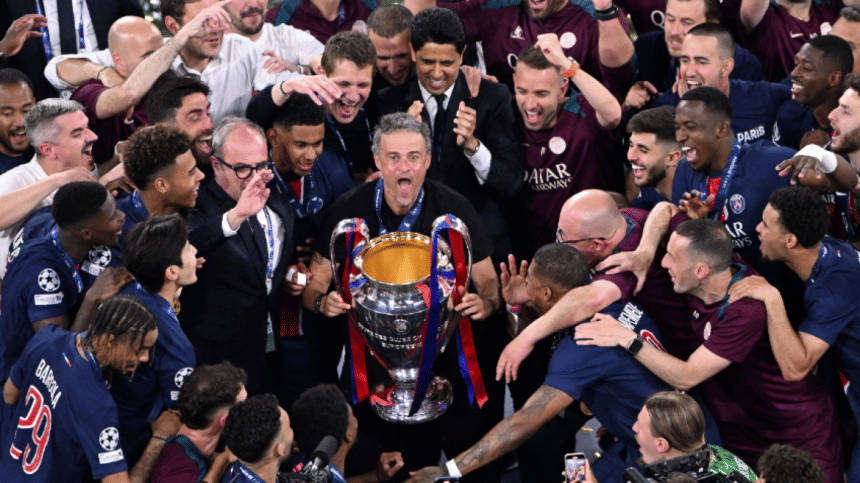
But as the fireworks burst and silver rained down, the night belonged not just to the players or the club, but to someone who wasn't even on the pitch.
Xana.
Six years ago, Luis Enrique's nine-year-old daughter died from osteosarcoma, a rare and cruel bone cancer. And when the final whistle blew, Enrique, who had just coached PSG to a historic treble, turned not to the cameras, but to the sky. And to her.
"My daughter has been with me since she left," he said. "She left physically, but she is always with me spiritually."
In the stands, PSG fans held up a massive tifo: an image of Enrique and Xana, together, planting a flag. It was a recreation of their moment after his 2015 Champions League win, leading to a treble, with Barcelona. Back then, she was beside him.
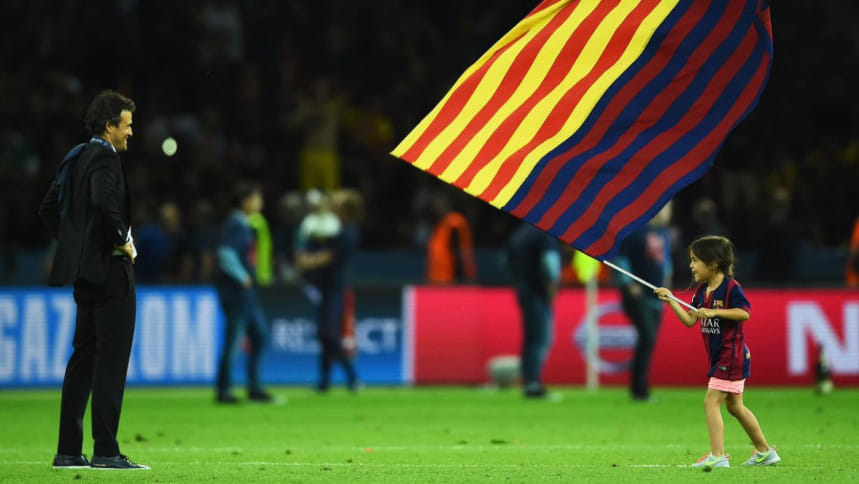
This time, she still was, just not where we could see.
"It was very emotional with the banner from the fans for my family," Enrique said. "But I always think about my daughter."
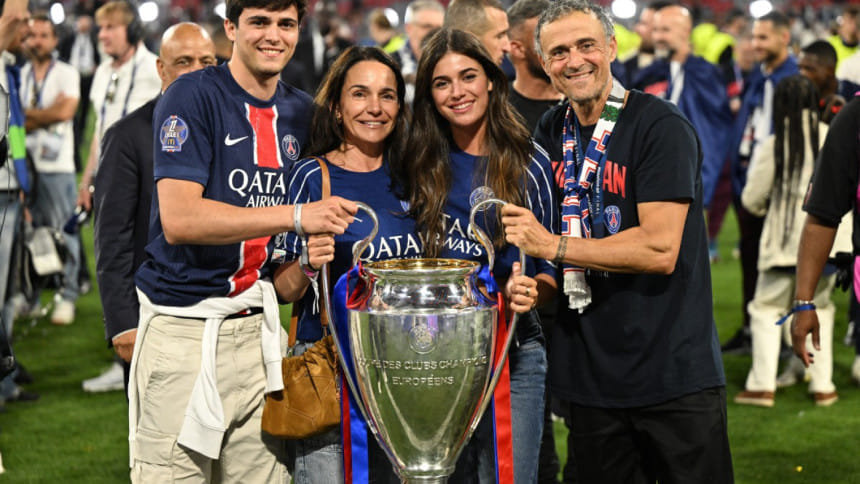
Grief changes you. Sometimes it hardens. Other times, it humbles. For Enrique, it became a quiet strength. As the 55-year-old's young team delivered what Lionel Messi, Neymar, and Kylian Mbappe could not, their coach never lost focus. Dressed all in black, he roamed the touchline; agile, composed, almost serene.
Maybe that is what makes Enrique's story so powerful. In a time where violence often drowns out kindness, and grief is something to hide, he has done neither. He has shown us what it means to carry someone with you, gently.
Reflecting on Xana's death, he once said in a documentary: "Can I consider myself lucky or unfortunate? I consider myself lucky, very lucky."
When asked, "but your daughter died at nine years old," the Spaniard replied, "Well, my daughter came to live with us for nine wonderful years. We have thousands of memories from her, videos, incredible things."
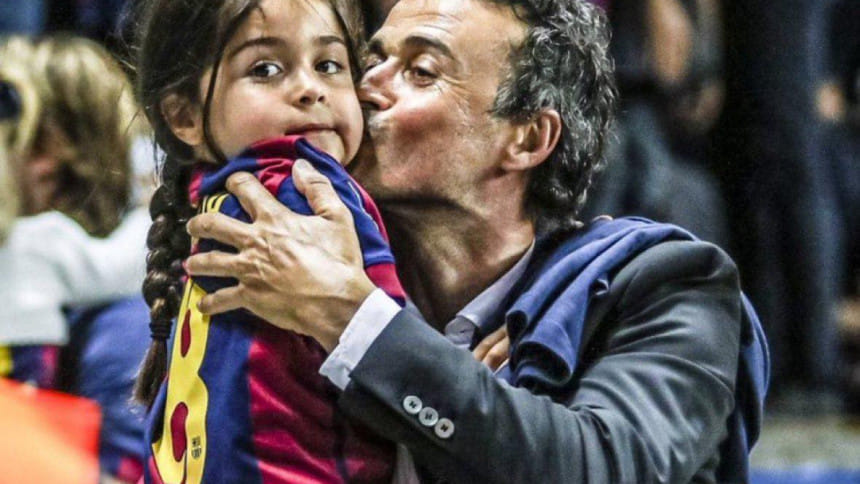
He told of how his mother couldn't even put up Xana's photos; it was too much. But Enrique gently reminded her of something larger than sorrow: "Xana is alive… Because every day we talk about her, we laugh and remember."
Among the many narratives that unfurled at the Allianz Arena, a man carrying his loss with grace stood out, like a colossal monolith.
And in that moment, when the confetti settled and the lights dimmed, Enrique wasn't just a coach. He was a father. He was a lesson. A quiet voice in a world that's forgetting how to feel.
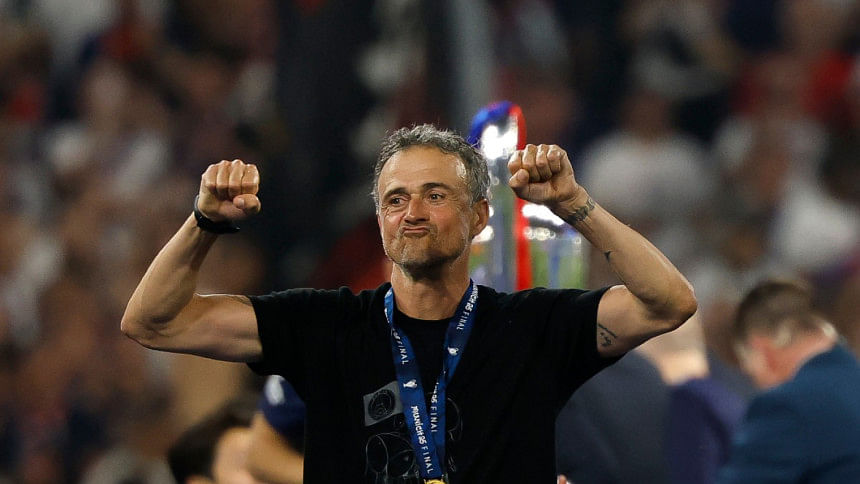
He was proof that even when you lose almost everything, you can still lead. Still laugh. Still love and find strength in it that lingers long after separation.

 For all latest news, follow The Daily Star's Google News channel.
For all latest news, follow The Daily Star's Google News channel. 

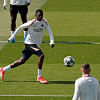


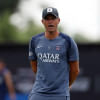



Comments